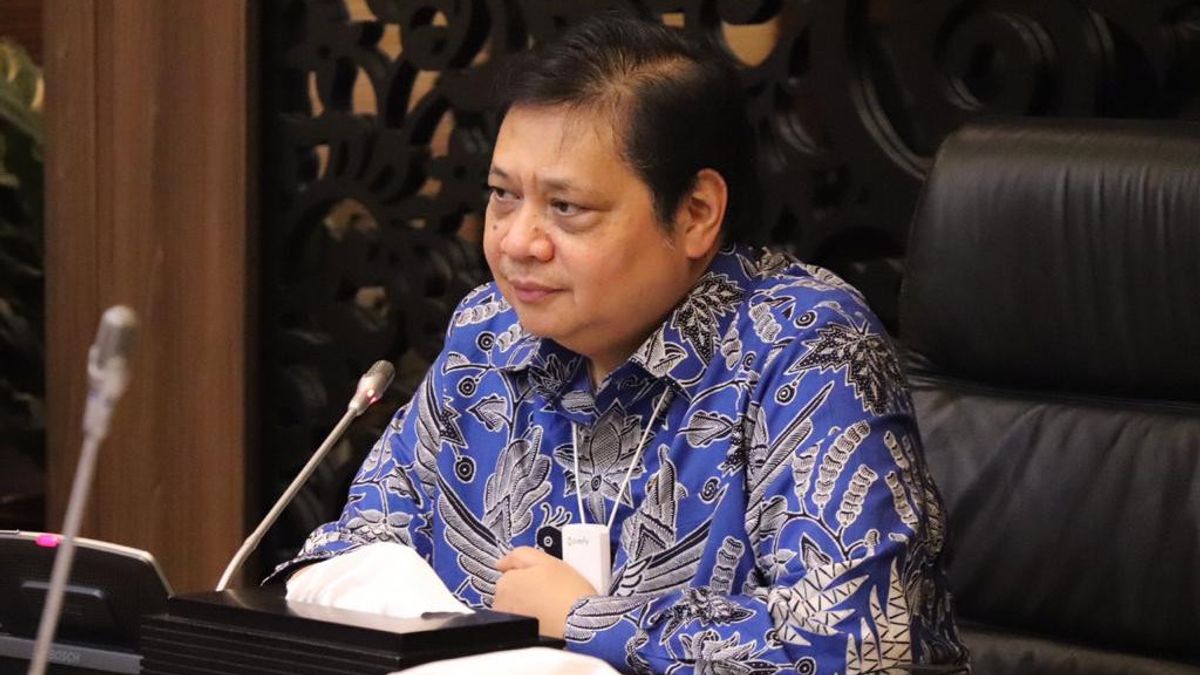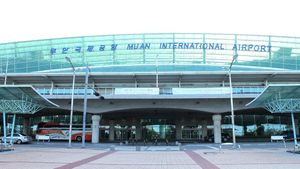JAKARTA - The government remains optimistic that the economic rate in the next two quarters will improve. In the second quarter of 2020, the economic performance did not match predictions where growth contracted or was minus 5.32 percent.
Coordinating Minister for the Economy Airlangga Hartarto said this negative economy could not be separated from the impact of the COVID-19 pandemic. According to him, all countries in the world also experienced economic contraction, even deeper than Indonesia.
"Indonesia is still relatively not as deep as other countries. However, we hope that there will be an effect of improvement on the global economy through both China and other countries that recover first," he said, in a virtual press conference, Wednesday, August 5.
Airlangga also explained that other countries such as the United States in the second quarter of 2020 contracted or minus 9.5 percent. Meanwhile, France minus 19 percent, Singapore minus 12 percent, and Mexico minus 18.9 percent.
Third Quarter Determines Indonesia's Recession or NotAirlangga said that Indonesia's condition was still better than other countries in the second quarter of 2020. However, economic growth in the third quarter of 2020 determines whether Indonesia will enter the abyss of recession or begin to recover.
"Indeed, the stakes for Indonesia are how we will recover or reverse in the third quarter," he said.
According to Airlangga, improvements can be achieved by strengthening the realization of a social safety net in the form of goods through social assistance (bansos) or cash.
Not only that, the support given to the business world, such as interest subsidies for ultra-micro and UMKM, management of MSME credit requirements, placement of funds, guaranteeing working capital credit, and tax incentives must also be strengthened.
"Of course we also hope that there will be an effect of improvement (in imports and exports) through the global economy, both China and other countries that recover first," he explained.
Previously, Head of BPS Suhariyanto said that the negative economic growth in the second quarter of 2020 was caused by contractions in various components. One of them is from the expenditure component.
As for the details, namely, household consumption which has a share of 57.85 percent of GDP grew by minus 5.51 percent. The Gross Fixed Capital Formation (PMTB) or investment indicator which contributed 30.61 percent of GDP was also minus 8.61 percent.
Meanwhile, exports, which held a share of 15.69 percent of GDP, grew by minus 11.66 percent. Imports with a portion of 15.52 percent grew minus 16.96 percent. Meanwhile, government consumption with a portion of 8.67p percent of GDP grew by minus 6.9 percent. Consumption of Non-Profit Institutions Serving Households (LNPRT) with a portion of 1.36 percent grew minus 7.76 percent.
In the second quarter of 2020, BPS also noted that most sectors experienced negative growth. Some that are still positive include information and communication, financial services, agriculture, real estate, education services, health services, and water supply.
The English, Chinese, Japanese, Arabic, and French versions are automatically generated by the AI. So there may still be inaccuracies in translating, please always see Indonesian as our main language. (system supported by DigitalSiber.id)













